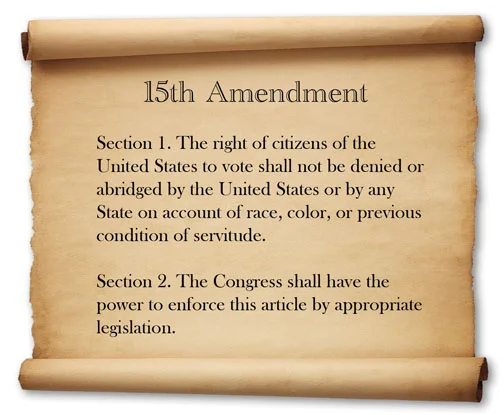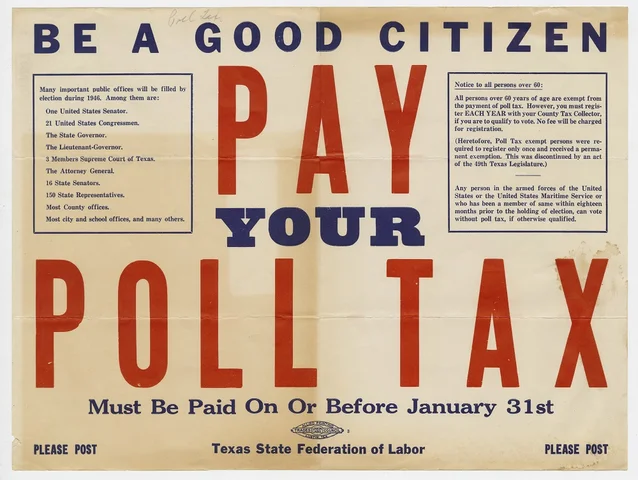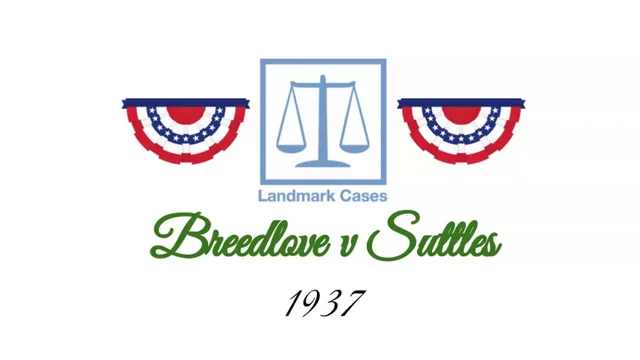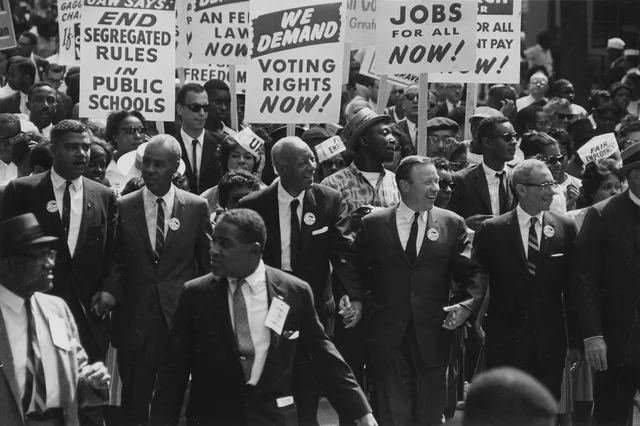-
 The Fifteenth Amendment, passed in 1870, gave African American men the right to vote after the Civil War. Even though it was a big step for equality, many states still found ways to block voters with things like poll taxes and literacy tests. This amendment helped set the stage for later laws, like the Twenty-Fourth Amendment, that worked to make voting fair for everyone.
The Fifteenth Amendment, passed in 1870, gave African American men the right to vote after the Civil War. Even though it was a big step for equality, many states still found ways to block voters with things like poll taxes and literacy tests. This amendment helped set the stage for later laws, like the Twenty-Fourth Amendment, that worked to make voting fair for everyone. -
 The poll tax was introduced in the 1890s in the southern states as a way to keep African Americans from voting after African American men were given the right to vote. It also prevented many poor people, including white citizens, from being able to vote.
The poll tax was introduced in the 1890s in the southern states as a way to keep African Americans from voting after African American men were given the right to vote. It also prevented many poor people, including white citizens, from being able to vote. -
 Georgia had a law that required people to pay the poll tax. A white male voter argued that it went against the 14th Amendment, but the state won the case because states have the right to set rules for voter qualifications as long as they do not violate the Constitution.
Georgia had a law that required people to pay the poll tax. A white male voter argued that it went against the 14th Amendment, but the state won the case because states have the right to set rules for voter qualifications as long as they do not violate the Constitution. -
 By the 1950s and early 1960s, civil rights groups started to understand that just having laws that promised equality—like the Fifteenth Amendment—wasn’t enough. In reality, unfair systems and rules, such as poll taxes and literacy tests, were still keeping many African Americans from being able to vote.
By the 1950s and early 1960s, civil rights groups started to understand that just having laws that promised equality—like the Fifteenth Amendment—wasn’t enough. In reality, unfair systems and rules, such as poll taxes and literacy tests, were still keeping many African Americans from being able to vote. -
 On March 27, 1962, the U.S. Senate approved what would later become the Twenty-Fourth Amendment with a strong vote of 77 to 16. The amendment was introduced by Senator Spessard L. Holland from Florida and aimed to end the use of poll taxes or any other taxes as a requirement for voting in federal elections.
On March 27, 1962, the U.S. Senate approved what would later become the Twenty-Fourth Amendment with a strong vote of 77 to 16. The amendment was introduced by Senator Spessard L. Holland from Florida and aimed to end the use of poll taxes or any other taxes as a requirement for voting in federal elections. -
On August 27, 1962, Congress officially sent the Twenty-Fourth Amendment to the states to be ratified after it passed with strong support in both the Senate and the House. This was a big win for civil rights activists who had been pushing to make voting fair for everyone.
-
On January 23, 1964, the Twenty-Fourth Amendment was officially ratified after the required number of states voted to approve it, making it a permanent part of the U.S. Constitution.
-
On April 27, 1965, the Supreme Court ruled in Harman v. Forssenius that Virginia’s attempt to replace the poll tax with a “certificate of residence” was unconstitutional. The Court said this still limited voting rights and violated the Twenty-Fourth Amendment.
-
In 1966, the Supreme Court made a big decision in the case Harper v. Virginia Board of Elections. The Court ruled that states couldn’t make people pay a poll tax or any kind of fee to vote in state or local elections. They said this was unfair and violated the Fourteenth Amendment’s Equal Protection Clause, because the amount of money someone has shouldn’t decide whether they get to vote.
-
Even though poll taxes are gone, some laws like strict ID rules and limited voting access still make it harder for certain people to vote. Courts and lawmakers debate whether these rules are fair, while activists keep fighting to protect everyone’s right to vote.